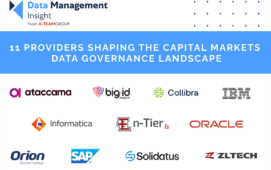At the end of last month, the Securities and Exchange Commission (SEC) published a 517 page document that details a whole host of new requirements for ratings agencies and those that use ratings in their day to day operations (ergo most of the market). The paper adds to the regulator’s recent investigation into he feasibility of a system in which a public or private utility or a self-regulatory organisation would assign a nationally recognised statistical rating organisation (NRSRO) to determine credit ratings for structured finance products.
The focus of the new rules is to improve transparency into and oversight of the ratings sector, which has come under heavy fire since the financial crisis for potential conflicts of interest in its pricing schemes and a lack of data transparency around ratings themselves. The SEC is therefore proposing amendments to current ratings rules, a new rule and form that would apply to providers of third party due diligence services for asset backed securities and requirements for more data to be published about the findings of these due diligence reports. Industry participants have less than 60 days to respond to the proposed rules and provide feedback about the potential impact of such moves.
In terms of changes to ratings rules as they currently stand, the SEC would require these agencies to introduce and document “an effective internal control structure governing the implementation of and adherence to policies, procedures, and methodologies for determining credit ratings”. These compliance requirements would involve much more prescriptive levels of acceptability regarding the policies, procedures and methodologies for determining ratings. The regulator is therefore seeking some input from the market about what it should be looking for in these judgements.
The SEC is also reviewing what the term “recordkeeping” means in this context and the level of data that these agencies should be storing and providing to the regulator on demand. This sits alongside a whole host of new rules related to conflicts of interest and management structures deemed acceptable to prevent these conflicts, as well as details of potential fines and other penalties for non-compliance.
In terms of data disclosure, the SEC is asking firms for feedback about the level of public disclosure needed. It is suggesting that performance measurement statistics should be provided alongside ratings and details about how the rating was determined, including historical data related to previous ratings. To this end, the SEC proposes that it: “shall require an NRSRO to ensure that credit ratings are determined using procedures and methodologies, including qualitative and quantitative data and models, that are in accordance with the policies and procedures of the NRSRO for the development and modification of credit rating procedures and methodologies.”
This level of data would be provided by a new form that would include disclosure of information relating to the assumptions underlying the credit rating procedures and methodologies and the data that was relied on to determine the credit rating. Moreover, if applicable, it would also include how the NRSRO used servicer or remittance reports, and with what frequency, to conduct surveillance of the credit rating. Supplementary information would also be required that could be used by investors and other users of credit ratings to better understand credit ratings in each class of credit rating issued by the NRSRO.
These more intensive data requirements will certainly alter the way firms consume data from ratings agencies, as well as requiring these agencies to invest in their internal data provision capabilities and recordkeeping systems.
Subscribe to our newsletter





